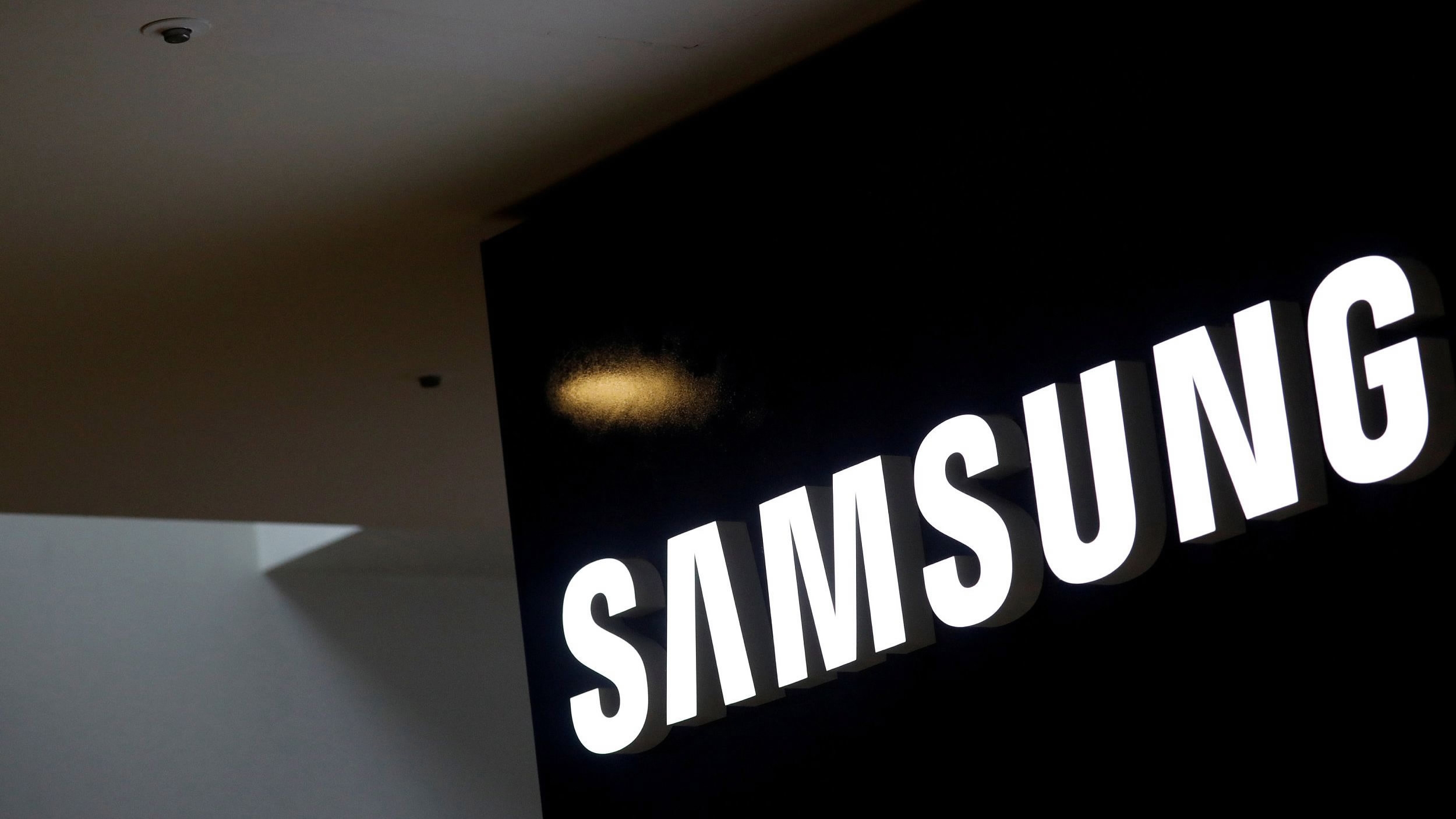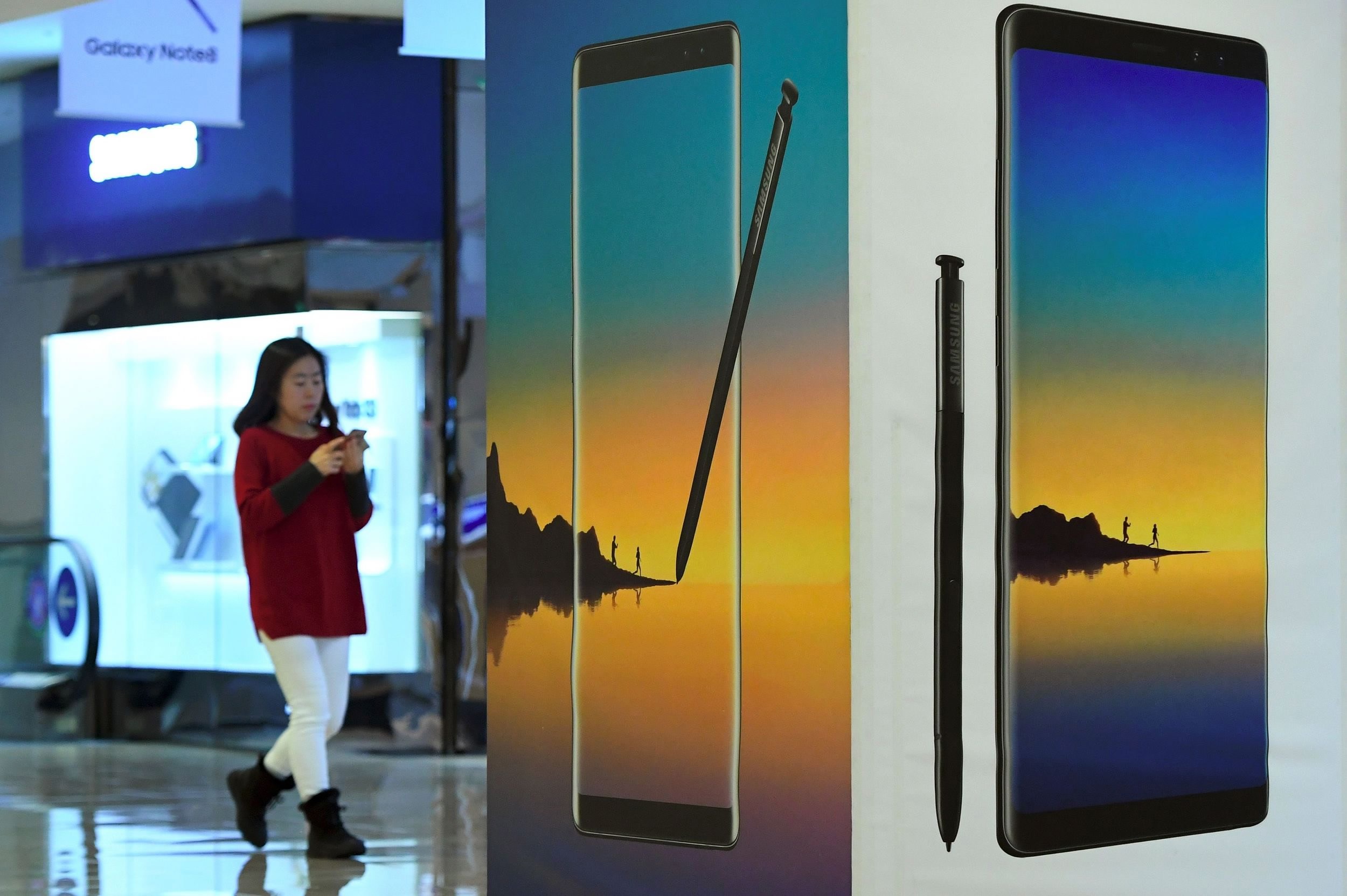
Business
15:54, 01-Feb-2018
Samsung developing foldable phones after record 2017
Nicholas Moore

South Korean electronics giant Samsung released record revenue figures for 2017 on Wednesday, overtaking Intel as the world’s largest chips manufacturer while confirming it was developing foldable phones and new chips capable of mining cryptocurrencies.
The last quarter of 2017 saw year-on-year growth of 24 percent, as overall profits for the year hit a record 53.65 trillion won (50.7 billion US dollars). Total revenue of 239.58 trillion won (225 billion US dollars) was led by the conglomerate’s chip sector, as well as its OLED smartphone displays.
Intel was the world’s largest chip producer for the last 25 years, but Samsung’s strategy of focusing on smart chips for mobile devices means it overtook the US giant, which has been slow to move from PCs to smartphones.

Samsung Electronics Co. dynamic random-access memory (DRAM) chips are seen inside an Apple MacBook Pro laptop. /VCG Photo
Samsung Electronics Co. dynamic random-access memory (DRAM) chips are seen inside an Apple MacBook Pro laptop. /VCG Photo
Samsung has recovered well from the disastrous 2016 release of the Galaxy Note 7, a flagship smartphone that had to be recalled due to exploding batteries.
The fallout of the phone’s safety flaws, which saw it banned from being taken onboard many commercial airlines, could have cost the company as much as 17 billion US dollars, according to Credit Suisse.
Internally, Samsung has seen Lee Jae-yong, the company’s heir and de facto chief jailed for five years, after being found guilty of bribing former president Park Geun-hye.

A model of imprisoned Lee Jae-yong, whose appeal will be heard on February 5, 2018. Seoul, South Korea. /VCG Photo
A model of imprisoned Lee Jae-yong, whose appeal will be heard on February 5, 2018. Seoul, South Korea. /VCG Photo
Four other Samsung executives involved in the case went down with Lee, amid various reports of a stifling hierarchical structure and internal conflict.
Since then, its latest line of smartphones saw impressive sales in 2017, but Samsung’s statement on Tuesday confirmed that it was working on “foldable OLED displays” for an upcoming range of flagship devices, in a move that could revolutionize the entire smartphone industry.

A woman walks past an advertisement for the Samsung Galaxy Note 8 at the company's showroom in Seoul on January 31, 2018. /VCG Photo
A woman walks past an advertisement for the Samsung Galaxy Note 8 at the company's showroom in Seoul on January 31, 2018. /VCG Photo
Equally intriguing is the announcement that the company is developing “cryptocurrency mining chips.” Application-specific integrated circuits (ASICs), as the chips are known, are already produced by Beijing-based company Bitmain, which controls 70 percent of the global ASIC market, according to Quartz.
Looking ahead to 2018, Samsung said that it would be looking at further developing its chip division to produce AI and big data technology.
In a separate announcement on Wednesday, Samsung and chip manufacturer Qualcomm announced a cooperation deal over the next five years, which will bring the two giants together to make the next generation of devices ready for 5G technology.

SITEMAP
Copyright © 2018 CGTN. Beijing ICP prepared NO.16065310-3
Copyright © 2018 CGTN. Beijing ICP prepared NO.16065310-3